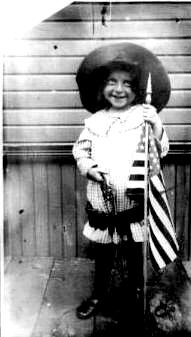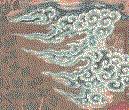Together with her husband, the young
woman crossed the Adriatic on a fast boat belonging to a gang from Montenegro.
He had already crossed the sea four times, and had been driven back as
many. This time they ended up at Foggia, in the camp at Borgo Mezzanone.
One evening, a police jeep was racing through
the camp. The jeep hit the man directly. The driver, just a young man,
pulled the parking brake, and the vehicle, out of control, ran over the
body three times. The Roma who came running up to see what had happened
saw the corpse and the desperation of the policeman, who seemed to want
to commit suicide.
What happened to the woman? Two children,
the sea behind her and nothing ahead...

Another woman is clutching her child tightly
on a boat which challenges the high waves. Every Romni has asked herself
the same question - what would she do if her child died in the middle of
the sea? It has happened to her. She knows what it means to hold a corpse
in her hands, but she pretends all is normal, since the pilot would certainly
not hesitate a moment to throw the body overboard. When they land, she
gets off like everybody else, then walks away alone. She digs a hole in
the sand and the gravel to bury her child. When the border police come,
she is charged with hiding a corpse.
The Adriatic is a fearsome sea. At times
pale grey, at times as red as blood and wine. Flotsam of the ships of the
Greeks, the Romans, the Saracens, the Venetians, the Ottomans... sunken
fleets and skulls lined up under water, Phoenicians and Illyrian pilots
covered with seaweed.
The Albanian refugees had crossed the Adriatic
on the great ships of the Italian navy; but the Rom refugees can only count
on the Montenegro Mafia.
Enemies and enemies. The most powerful country
in the world, with its aircraft carriers, its radar, its enormous killer
planes and death rays. The pilots have never seen the Balkans, they live
in lovely houses with lawns in front of them, so far away that the Roma
cannot even conceive of the distance.

How can the Roma save themselves from a genocide
which does not even exist? The invisible, useless people, nobody's army
and nobody's tool.
Reska who would like to fall in love,
Reska courted as she washes the family's clothes... Reska who writes love
poems in Italian and keeps her notebooks inside a plastic shopping bag
- Reska will have to challenge all the monsters of this world.
First, to find money.
Roma lend money to their brother Roma at
ten percent interest a month.
Ask them for five thousand dollars, you will
have to give them five hundred a month, so you will never have five thousand
to pay them back. A slave for life to save a life. This is the Debt,
and you can hear the capital letter as they say it. Unlike others, Reska's
family is lucky. They lose everything, just as Bajram is being left at
home without working, but only a small part of the four thousand dollars
they put together is actually Debt.
Reska, small as a butterfly, sets out alone,
jumping on her crutches and clutching at railings, to go South she goes
North, Austria then Hungary and down to Belgrade.
Reska goes on and on to Nish, among the naked
children with fair, dirty hair.
She picks up Lulzim and his family, and they
take the bus to Montenegro… bays of pirates… Cetinje a century ago used
to dress up for its holidays by sticking the heads of Muslims on pikes
along its walls.
Dark Rom skin. The smell of need is strong
and clear, and it attracts men like blood attracts flies.
They are immediately surrounded by merchants
who know no frontiers: Montenegrini, Neapolitans, Calabresi, and other
Roma.
Turning Italian lire into German marks, the
life of little Xhevrija gets a discount.
Crushed one against the other, grownups and
children are now flying across the waves. The sea gets angry, and the boat
goes off course. Suddenly, they realize they are sliding towards
Albania… die of Albania or die of water? The pilots decide - if everybody
agrees not to accuse them, they'll call for help. It is deep at night,
amidst the waves; a helicopter appears, with a great beam of light; from
the boat, tiny unheard voices shout, a boy picks up a flashlight, but a
gigantic cold wave sweeps it out of his hand... the helicopter goes away.
For hours and hours, little Xhevrija, born in a night of bombs over Prishtina,
cries, but the high waves throw her up in the air, and her mother is unable
to feed her. Then, tiny thing in an immense world, she starts sucking her
thumb. Finally, the sea calms down and the Italian coast appears.

You are welcome to use this article
on condition that you put the whole text of "Collateral Lives" on your
website and provide a link to http://www.kelebekler.com/
